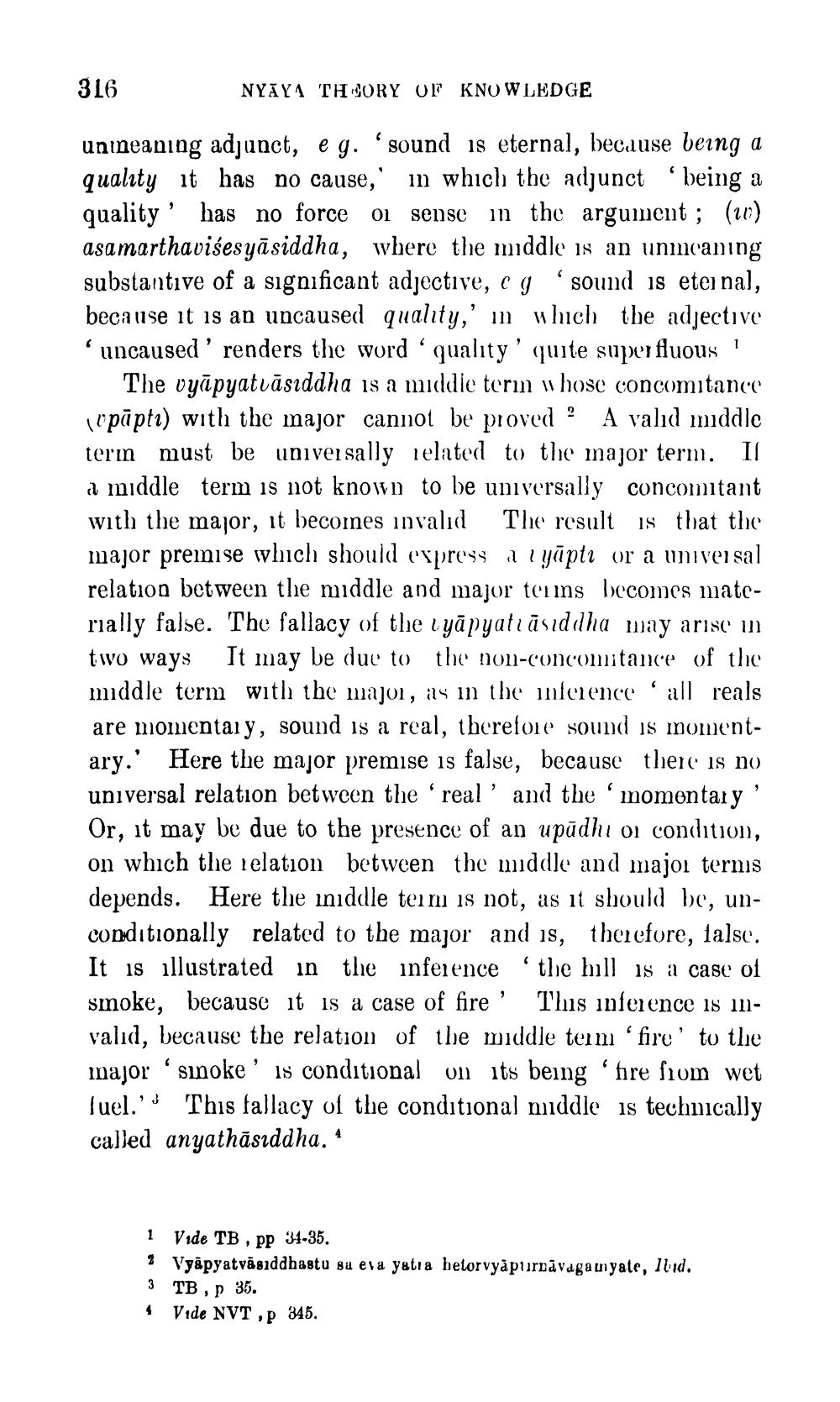________________
316
NYAYA TH CORY OF KNOWLEDGE
unineaning adjunct, e g. 'sound is eternal, because being a quality it has no cause,' in which the adjunct being a quality' has no force ol sense in the argument; (10) asamarthavišesyāsiddha, where the middle is an unmeaning substantive of a significant adjective, c 9 'sound is eternal, because it is an uncaused quality,' m which the adjective 'uncaused' renders the word 'quality' quite superfluous !
The vyāpyatvāsiddha is a middle term whose concomitance l'pāptı) with the major cannot be proved ? A valıd middle terin must be universally related to the major term. In a middle term is not known to be universally concomitant with the major, it becomes invalid The result is that the major premise which should express il yāpti or a universal relation between the middle and major terins becomes materially false. The fallacy of the lyāpyatāsiddha may arise in two ways It may be due to the non-concomitance of the middle term with the majoi, as in the mfcience 'all reals are momentary, sound is a real, therefore sound is momentary.' Here the major premise is false, because there is no universal relation between the 'real' and the 'momentary Or, it may be due to the presence of an upūdhu oi condition, on which the relation between the middle and major ternis depends. Here the iniddle term is not, as it should be, unconditionally related to the major and is, therefore, lalse. It is illustrated in the inference the hill is a case of smoke, because it is a case of fire' This inference is invalıd, because the relation of the middle term 'fire' tu the major 'sinoke’ is conditional on its being 'fire from wet Tuel.'' This fallacy of the conditional nuddle is technically called anyathāsiddha.
1 Vide TB, pp 31-35. 2 Vyāpyatvāsiddhastu su eva yatia helor vyāpurnāvagainyate, Ibid. 3 TB, p 35. 4 Vide NVT ,P 345.




